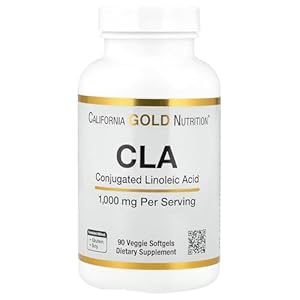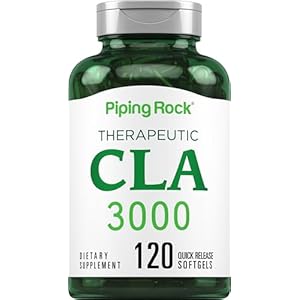
When it comes to supporting better gut health, the foods you choose play a crucial role in maintaining a balanced and thriving gut microbiome. Incorporating probiotic-rich foods like yogurt and kimchi can aid in promoting a diverse bacterial community, while high-fiber options such as fruits and legumes work to nourish beneficial gut bacteria. But what other lesser-known foods could potentially enhance your gut health? Stay tuned to discover the surprising additions that could make a significant difference in supporting your digestive system.
Probiotic-Rich Foods
Boost your gut health by incorporating probiotic-rich foods into your diet. These foods are packed with beneficial bacteria that can help balance your gut flora and improve digestion. Yogurt is a popular choice, as it contains live and active cultures that promote gut health. Make sure to choose plain yogurt without added sugars for maximum benefits. Kefir, a fermented milk drink, is another excellent option that can introduce a variety of probiotics to your system.
Sauerkraut, a fermented cabbage dish, is a great source of probiotics and can add a tangy kick to your meals. Kimchi, a spicy Korean side dish made from fermented vegetables, is also rich in probiotics and can enhance the flavor of your dishes. If you’re a fan of pickles, opt for the naturally fermented kind to reap the probiotic benefits.
Incorporating these probiotic-rich foods into your daily meals can help support a healthy gut microbiome. Experiment with different options to find what suits your taste buds best and enjoy the benefits of a happier gut.
High-Fiber Options
To further enhance your gut health, consider incorporating high-fiber options into your diet. High-fiber foods play a crucial role in supporting a healthy gut by promoting regular bowel movements, feeding beneficial gut bacteria, and reducing inflammation.
Some excellent sources of fiber include fruits like berries, apples, and pears, as well as vegetables such as broccoli, carrots, and Brussels sprouts. Whole grains like oats, quinoa, and brown rice are also rich in fiber and beneficial for your gut health.
In addition to fruits, vegetables, and whole grains, legumes like lentils, chickpeas, and black beans are fantastic high-fiber options to include in your meals. Nuts and seeds, such as chia seeds, flaxseeds, and almonds, can also boost your fiber intake.
Fermented Foods
Including fermented foods in your diet can significantly benefit your gut health by introducing probiotics that support a healthy digestive system. Fermented foods are rich in beneficial bacteria that can help maintain a balanced gut microbiome, aiding in digestion and overall wellness.
Yogurt is a popular fermented food that contains probiotics like Lactobacillus and Bifidobacterium, which can help improve gut health. Kefir, a fermented milk drink, is another excellent source of probiotics that can contribute to a healthy gut flora.
Kimchi, a traditional Korean dish made of fermented vegetables like cabbage and radishes, isn’t only delicious but also packed with probiotics. Sauerkraut, a type of fermented cabbage, is another probiotic-rich food that can support your digestive system.
Incorporating these fermented foods into your diet can help increase the diversity of good bacteria in your gut, promoting better digestion and absorption of nutrients. By making fermented foods a regular part of your meals, you can work towards improving your gut health and overall well-being.
Prebiotic Sources
Introducing prebiotic sources into your diet can further enhance the benefits of fermented foods by nourishing the good bacteria in your gut. Prebiotics are non-digestible fibers that promote the growth and activity of beneficial bacteria in the gut. They act as food for probiotics, helping them thrive and improve gut health. Some common prebiotic sources include chicory root, garlic, onions, leeks, asparagus, bananas, and apples. By incorporating these foods into your meals, you can create a more favorable environment for the probiotics from fermented foods to flourish and support your digestive system.
Including prebiotic sources in your diet not only aids in digestion but also enhances nutrient absorption, boosts the immune system, and may even help in weight management. These foods are relatively easy to incorporate into your daily meals. For example, you can add chopped garlic and onions to stir-fries, include asparagus or leeks in salads, or enjoy a banana or apple as a snack. By diversifying your diet to include prebiotic-rich foods, you can take a significant step towards improving your gut health.
Gut-Healing Nutrients
Enhance your gut health by incorporating nutrient-rich foods that support healing and restoration. Consuming foods rich in gut-healing nutrients can promote a healthy digestive system and overall well-being.
Antioxidants, such as vitamin C found in citrus fruits and bell peppers, help reduce inflammation in the gut lining, aiding in healing processes. Zinc, present in foods like seeds, nuts, and legumes, plays a crucial role in repairing intestinal tissues and supporting immune function. Omega-3 fatty acids, abundant in fatty fish like salmon and flaxseeds, possess anti-inflammatory properties that can benefit gut health by reducing inflammation and promoting healing.
Including foods high in collagen, such as bone broth and gelatin, can help strengthen the gut lining and improve its integrity. Probiotic-rich foods like yogurt, kefir, and sauerkraut contain beneficial bacteria that support gut health by restoring a healthy balance of microorganisms.
These gut-healing nutrients work synergistically to repair, protect, and nurture your digestive system, promoting optimal gut function and overall wellness.
Diet & Sports Nutrition














